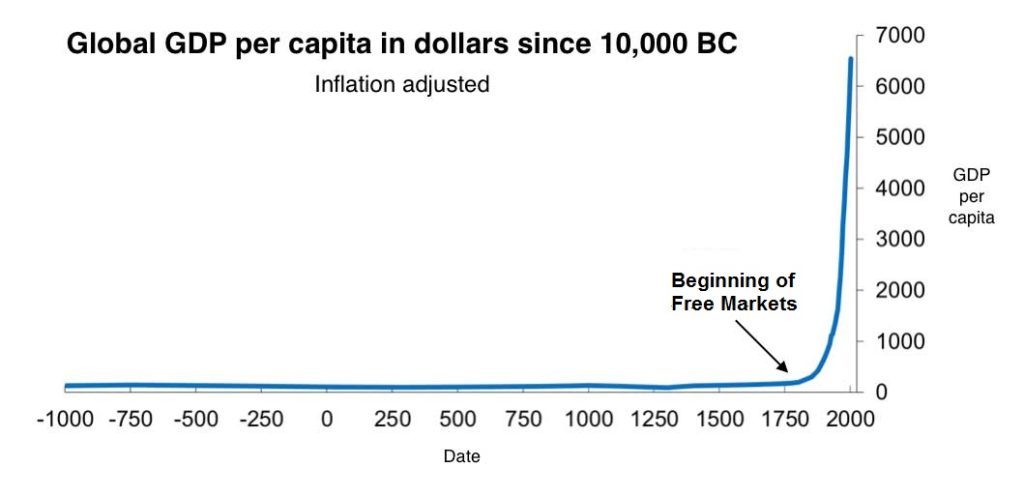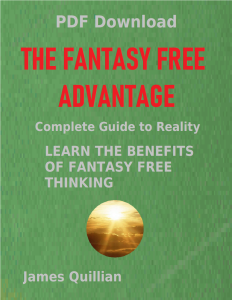Fantasy Free Economics On Free Markets PDF Version
 When discussing free markets, I avoid using the term capitalism. Mostly when folks use capitalism as a term, they do mean free market system. Capitalism literally means that the factors of production, land, labor and capital are owned privately. Given that – the economy in the United States is capitalist.
When discussing free markets, I avoid using the term capitalism. Mostly when folks use capitalism as a term, they do mean free market system. Capitalism literally means that the factors of production, land, labor and capital are owned privately. Given that – the economy in the United States is capitalist.
There is more to a free market than the people – not government, owning the factors of production. Free markets can only work in a system based on democratic principles. Capitalism can function in an authoritarian state. In the United States we do have a capitalist economy but not a free market system.
It is not always enough to know the definition of a word. The term conspiracy theorist, for example, brings up the mental image of a kook. Capitalist produces the image of a wild – eyed, brutal psychopath exploiting all others mercilessly.
Government actually has an imperative role to play in a free market system. Government absolutely must guarantee a level playing field. In the United States, the government doesn’t do that. That is a huge and difficult task. Free market does not mean an absence of government.
In Fantasy – Free Economics, free market constitutes an optimum level of production and well – being for society as a whole. This is not an opinion. It is an observation. Free people working and producing according to their own inclinations, free from government directives accomplish much more than the same folks do by following the dictates of a plan.
From historical times until the mid 1700s, there was no meaningful increase in per capita GDP. As soon as the free market system was adopted, the well being of all income classes began going parabolic. New technologies exploded.

Adam Smith put it this way.
“It is not from the benevolence of the butcher, the brewer, or the baker that we expect our dinner, but from their regard to their own interest.
In today’s world, Adam Smith is alluded to constantly. His principles are treated as platitudes.
This is what John Maynard Keynes thought of Adam Smith.
“Economists must leave to Adam Smith alone the glory of the Quarto, must pluck the day, fling pamphlets into the wind, write always sub specie temporis, and achieve immortality by accident, if at all.”
It seems Keynes never looked at per capita GDP growth following the adoption of Smith’s principles.
What About A Safety Net?
It is only reasonable to expect any population to opt to assist society’s members who are unable to adequately help themselves. Doing this does reduce per capita GDP but not all this much. An economy can provide charity – but it must be just that. A system that turns into a life management system is quite damaging. A safety net can be implemented while free market attributes are changed very little. That is – as long as assistance is all that is provided. To do otherwise is to create opportunities for those with the desire and means to exploit the problems of the disadvantaged for personal gain.
During the Great Depression, communism became popular. Life was tough in the United States. Few even noticed that at the very worst time in United States history the living standards of average Americans was higher than any other system had produced during the best of its times. In the old Soviet Union…. a communist system, life of the average person never did reach the level achieved in the United States with its free market system…. during the worst time in its economic history.
A free market system, with a business cycle…. is not perfect. It is the best possible system regardless. There is a limit to how much certainty can be achieved in life. A close looks reveals that uncertainty is the way of the universe. It is an illusion…. that life’s uncertainties can be eliminated through central planning. They can’t even be reduced, just redistributed.
Views: 22

